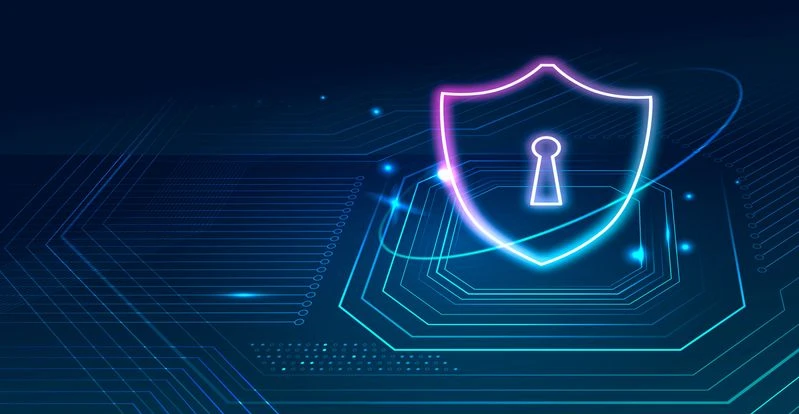How Can a VPN Benefit Your E-commerce Business?

E-commerce has been hailed as the future of shopping long before the pandemic started, but the last two years have solidified the importance and potential of e-commerce for everyone. It almost seems unimaginable to have a modern business operating exclusively offline.
An e-commerce business model eliminates many obstacles that traditional business owners have to face regularly – whether that be paying for a fancy office or being limited to your immediate geographic location. E-commerce makes reaching new clients easier and saves you some money since you don’t have to overspend on interior design as a way to attract clients.
But managing an e-commerce business comes with its own set of challenges, including the ones concerning your company’s cyber-security. In many ways, it may be easier to maintain that than the safety of a regular, offline company, but the main obstacle lies in knowing what to expect. Since the industry is still considered new, it’s difficult to think of every little nuance at once, especially if you are not well-versed in cyberspace matters. Still, the most pressing topic that gets business owners in trouble the most seems to be the question of cyber security.
While some overlook it because of a lack of resources, others do it because of ignorance. At the end of the day, though, the importance of cyber safety can hardly be overstated. Despite what some people think, these cyber-threats are manageable. They can be prevented with the help of cyber-defense tools like VPNs and antiviruses, along with some cyber-security training for the company employees. For starters, let’s break down these cyber security tools and how they can help keep your business safe.

What is a VPN?
VPN stands for Virtual Private Network. When you download the VPN application and connect to one of the secure servers offered through the service, your internet connection gets encrypted. Your internet connection is not as private as you may think; almost anyone can see your IP Address and then use it to find out more. But when you connect to a VPN server, your connection gets rerouted through a secure tunnel so that no one can access your connection, and you can stay private online. Retaining online privacy is equally important for individual users and businesses alike, although for different reasons.
VPNs guarantee online privacy by concealing your online activity and making it impossible for anyone to trace it back to you. Many people don’t know this, but your internet service provider (ISP) can always see what you are doing online, even when you are using a private mode of browsing. In the case of e-commerce, your ISP has access to all the info you exchange online and all the data you may store on your cloud, including the details of your customers and other providers. ISPs usually have limited use for this data, but when they want to make some extra money on the side, they frequently choose to sell it to third parties, and they never take any responsibility for what happens with that data. You’d be surprised to know just how many ISPs get away with this sort of behavior regularly.
This is an invasion of personal privacy, but this could also mean some serious damage to your business. If your clients start getting targeted ads after doing business with you, it’s a bad look for the whole company. Your customers should feel like their data is safe with your company and that you won’t abuse the trust they’ve put in you. While these third parties will take any data, e-commerce websites can be especially profitable for them. This is why having a VPN is an essential cybersecurity step for any online business.
How to use a VPN to protect your e-commerce business?
The most common reason hackers will try to introduce malware into your internet connection or device is financial, and with e-commerce, there is plenty for hackers to gain. They could be after your financial accounts or even your client information. If your e-commerce business does not have proper cyber-defense tools, this attempted hacking will damage your business financially. Still, it is also pretty hard to recover from such incidents as far as your company’s reputation is concerned.
In cyber-security matters, once the damage is done, there are not many things you can do to turn the tide. This is why having a strong cyber-defense is more important than focusing on cyber offense tools or taking care of the aftermath. Investing in good cyber security tools and staying up to date with the latest news in cyber safety will go a long way for any company.
The most common way for hackers to infiltrate your device is through a malicious link. Hackers will often use a misleading email to get the person within the company to click on the malicious link. The software can take over your device or your accounts, depending on what malware you’re dealing with.
Malware is malicious software that seeks to damage your device. Hackers use it to target users, but the users themselves can sometimes click on the malicious website and infect their own devices by accident. There are many different types of malware: some are meant to damage the receiver financially, and others might want to take down a website or wipe all the data from the device. And once you click the malicious link, the damage is already done.

With strong cyber-defenses, you can avoid handing over your financial data and other sensitive information to hackers. NordVPN Threat protection neutralizes all kinds of attempted attacks, specifically malware, ads, or trackers that hackers may use to gain access to your accounts and your internet connection.
The Threat protection feature removes malware by scanning each attachment you download. If the file contains malware, NordVPN will notify you, and you can delete the file right away. In addition to that, NordVPN checks the list of websites known for hosting malware, and if you try to visit one, NordVPN will then block your access to it and send a warning message.
With Threat protection, you will also shield your business and employees from trackers and the malicious ads that keep getting in the way of reaching your goals efficiently. Threat protection works to ensure that you never have to do any damage control for your business, as it will prevent all attacks right at the start.
Apart from using a VPN as a defense against cyber threats, keeping your employees up to date with cyber security basics is also good. A lot of hacking incidents happen because of human errors, not because the malware is so sophisticated that it can infiltrate the top-notch security of the company. This is why it is advisable to provide your employees with some basic cyber security training and ensure that they are aware of the most popular scams and phishing tactics that are going around. This will save you a lot of money and worry in the long run.
What are some other uses for a VPN?
Apart from detecting malware and trackers before the situation gets out of hand, NordVPN helps keep your internet connection private from snoopers. Still, a VPN can also be used for other purposes that will benefit your e-commerce business.
Save money while traveling
If you want to plan a company-wide international getaway or a conference, you’re better off using a VPN when booking your hotel rooms and tickets. Most hotels and airlines will show you different price points based on where you are browsing the web. While using a VPN, you can play around with various servers, see which one can get you the best deal, and then take it. It could save you hundreds or even thousands of dollars in minutes.
Access geo-blocked content
In addition to better deals when traveling, having a VPN will also give you access to geo-blocked content. Often, certain content, be that online seminars or workshops, even guides, and TV shows, will only be available in certain parts of the world while being blocked on the rest. With a VPN, you can access all available content simply by switching your server to the one located in the country where the website is accessible and enjoy the content.
Having a VPN is a multi-use investment. You ensure your company’s cyber security and prevent malware attacks, trackers, and annoying ads while also opening new opportunities for yourself and your employees through overcoming geo-blocks and getting better deals on travel arrangements.


